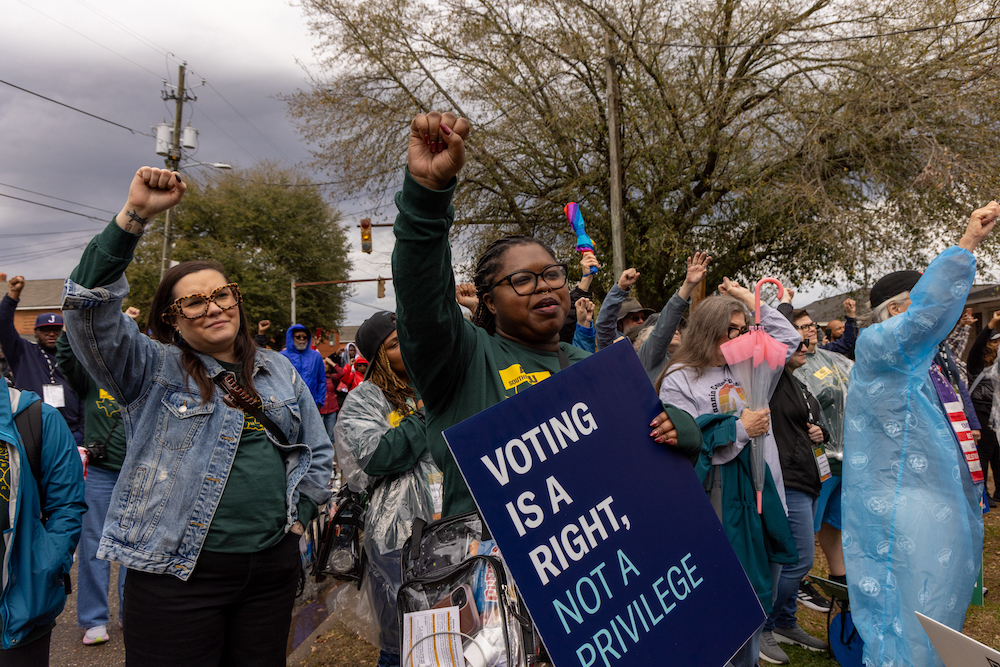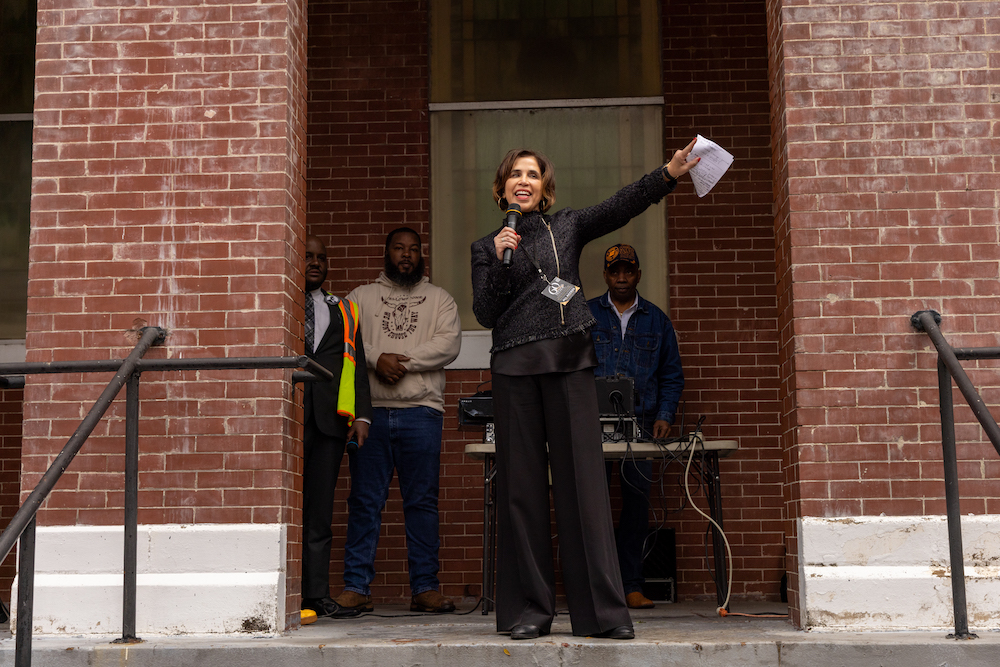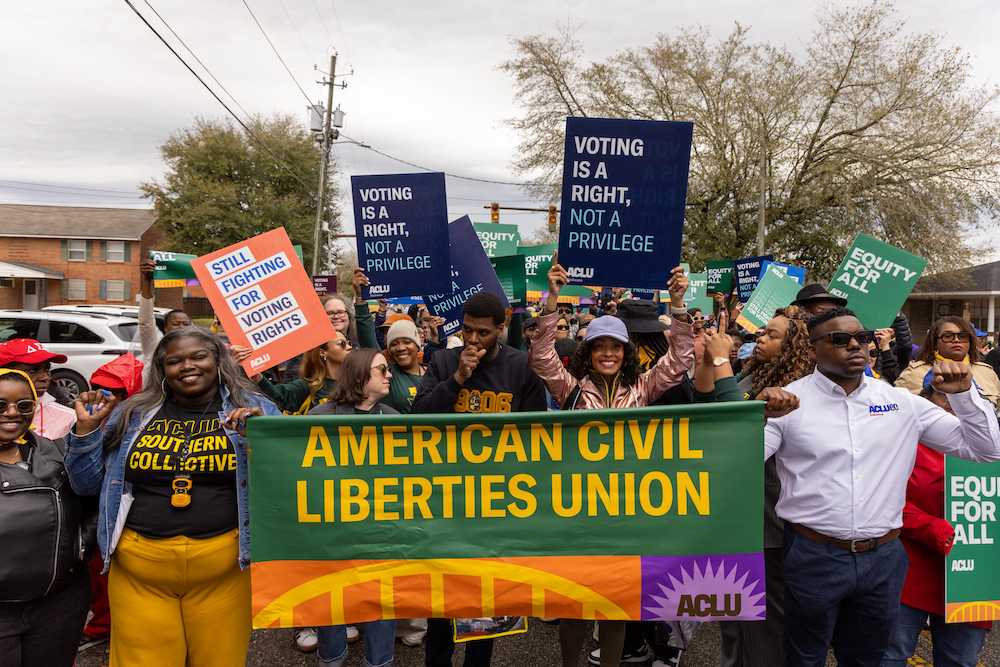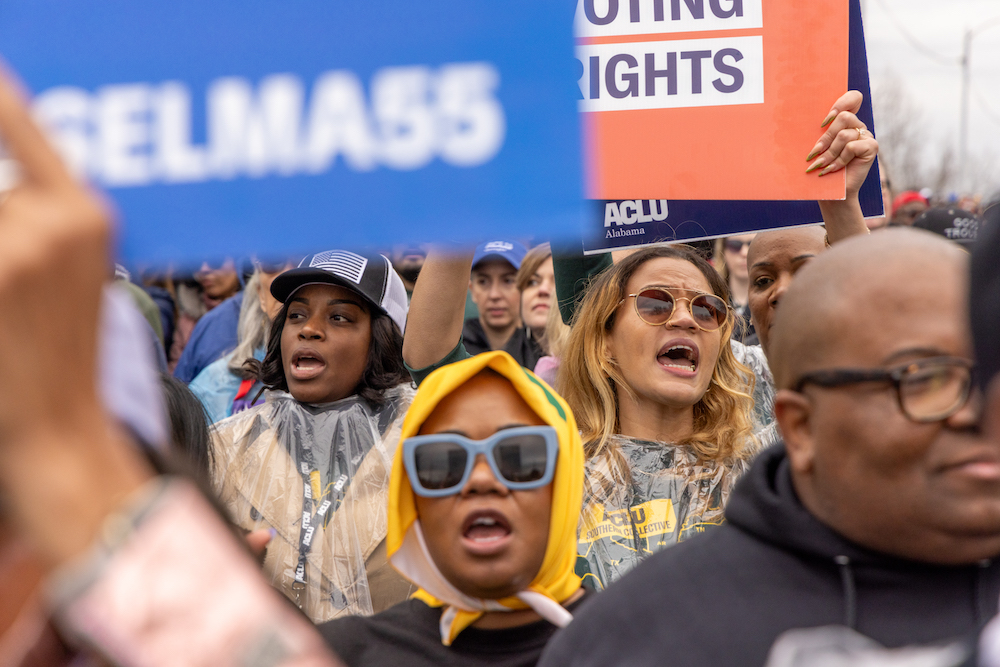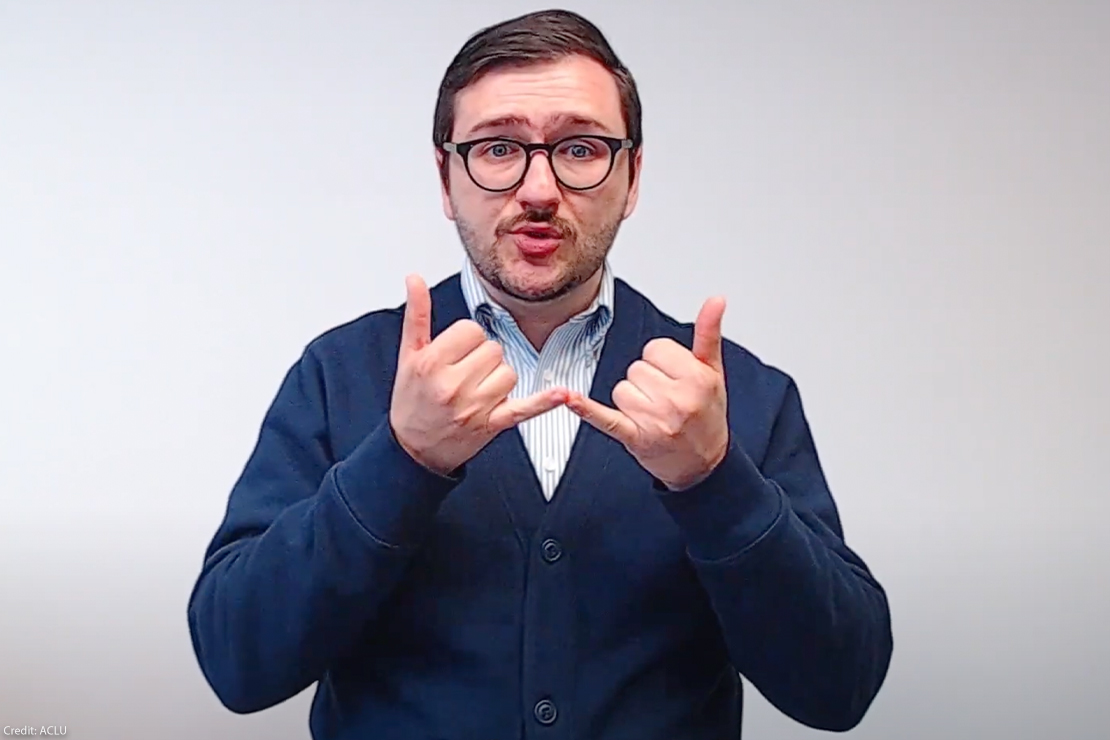State and local officials play direct and crucial roles in shaping and safeguarding our civil rights and civil liberties, especially amid the Trump administration’s ongoing attacks. These offices and officials – governors, state legislatures, attorneys general, and mayors – influence countless parts of our daily lives but, most importantly, their decisions can determine voter access, life-saving healthcare, gender-affirming care, and other vital rights the Trump administration has threatened.
Below, we break down the offices and officials who can – and must – uphold our rights.
How Can Governors Combat Trump?
Governors sign bills into law, determine law enforcement priorities, and develop state budgets, all of which directly impact our civil rights. For example, they can enact laws that either protect or ban abortion, and advance or hinder voting rights. Governors also wield influence over the criminal justice system. They supervise state law enforcement agencies, appoint corrections officials, and can advocate for policies to reduce mass incarceration, address racial disparities in our justice system, and keep communities safe.
As part of the ACLU’s Firewall for Freedom campaign, we are asking governors to direct state agencies not to voluntarily share private information or otherwise collaborate with federal law enforcement seeking to violate civil rights and civil liberties. This doesn’t end with law enforcement — officials must safeguard student data, stop collecting information that could be weaponized against our communities, and enact policies to ensure students do not suffer discrimination and harassment at school.
What Role Do Attorneys General Play in Protecting Our Rights?
Attorneys general serve as the guardian for legal rights in the state, which covers all kinds of freedoms for millions of people. We’ve asked attorney generals to issue guidance addressing our firewall asks — but that’s just one step they can take.
As many states strengthen their anti-discrimination laws, attorneys general can proactively issue guidance affirming these protections against Trump administration threats. Their guidance can help protect undocumented communities, LGBTQ individuals, and protesters from politics that target them for discrimination or harassment. They can also challenge voter suppression laws in court and enforce protections for abortion providers. Already, a number of attorneys general have filed cases challenging Trump administration executive orders that roll back civil rights protections and threaten local resources that communities rely upon.
Why Are State Legislatures Critical to Our Rule of Law?
State legislatures write and pass laws that directly impact our freedoms. Most urgently, they must pass privacy laws to bar corporations and law enforcement from using unchecked data collection to track sensitive activities like seeking reproductive or gender-affirming care. Meaningful legislation — often called SHIELD laws — limit the data that companies can collect and share, reducing the risk of surveillance, discrimination, and exploitation of personal information.
State legislatures also must establish election laws that can make it easier for us to vote. Since Roe v. Wade was overturned, these legislatures have the power to protect abortion in their state. Their authority also extends to criminal justice reform in defining crime, response procedures, and sentencing. They must also limit cooperation with federal authorities’ immigration policy, and codify legal protections for LGBTQ individuals.
What Do State Treasurers and Others Do to Safeguard our Rights?
State Treasurers, comptrollers and controllers oversee the fiscal health of each state and hold authority over crucial financial decision making. They also do crucial work to keep legislatures informed about the true impact of federal decisions on resources to the state.
With federal funding under threat by the Trump administration — often coupled with disinformation about how state and local agencies are actually using those funds — state treasurers will play a crucial role to speak to the devastating impacts of rolling back funding authorized by Congress. These fiscal leaders will also play a truth telling role when faced with any sweeping mischaracterizations of the lifesaving and essential community programs that our federal money protects.
How Do Mayors Fight Trump Administration Abuses?
Similar to governors, mayors have direct authority over city policies, law enforcement, and social programs. They play a crucial role in reproductive rights by allocating funding to support clinics and protecting patients from government harassment. Mayors oversee local police departments, set public safety policies, and promote community-based policing reforms. Many mayors also shape immigration policies within their cities, able to enact sanctuary policies that limit cooperation with federal deportation efforts.
Why Are School Boards Vital to Students’ Rights?
School boards are instrumental in defining policies that impact students and parents’ civil rights . They promote civic education, sex education, and block efforts to ban books and censor teachers. When school boards implement restorative justice programs, they support criminal justice system reform and reduce punitive measures that disproportionately affect students of color. Additionally, school boards establish policies – such as anti-bullying protections and access to inclusive facilities — to support LGBTQ students.
Right now, the ACLU’s nationwide affiliates are asking their governors, attorneys general, mayors and other state and local officials to say no to Trump’s radical agenda. To support their work, the ACLU has a playbook primed to defend our fundamental freedoms, which includes comprehensive and necessary tools across reproductive rights, immigration, free speech, and more to uphold our rights in the states where we live.
Want to take action alongside your officials? Our volunteer teams help mobilize and organize communities all across the country in defense of our civil liberties by making calls, sending texts, or writing letters
Published March 25, 2025 at 10:54PM
via ACLU https://ift.tt/Zjtv7Oz
